
This morning we do manage to drive along the Great Ruaha River. It is sobering as there is virtually no water in it. This is a very hard time for the wildlife and the rain is desperately needed. Anderson tells us that when the rains come the whole area is inaccessible and he points to the water marks on trees to demonstrate high high the water level rises. It is at least 3-4 metres above us. This whole area will be totally transformed. Only researchers will be able to come here as game drives will be largely impossible. This is very hard to envisage at the current time.
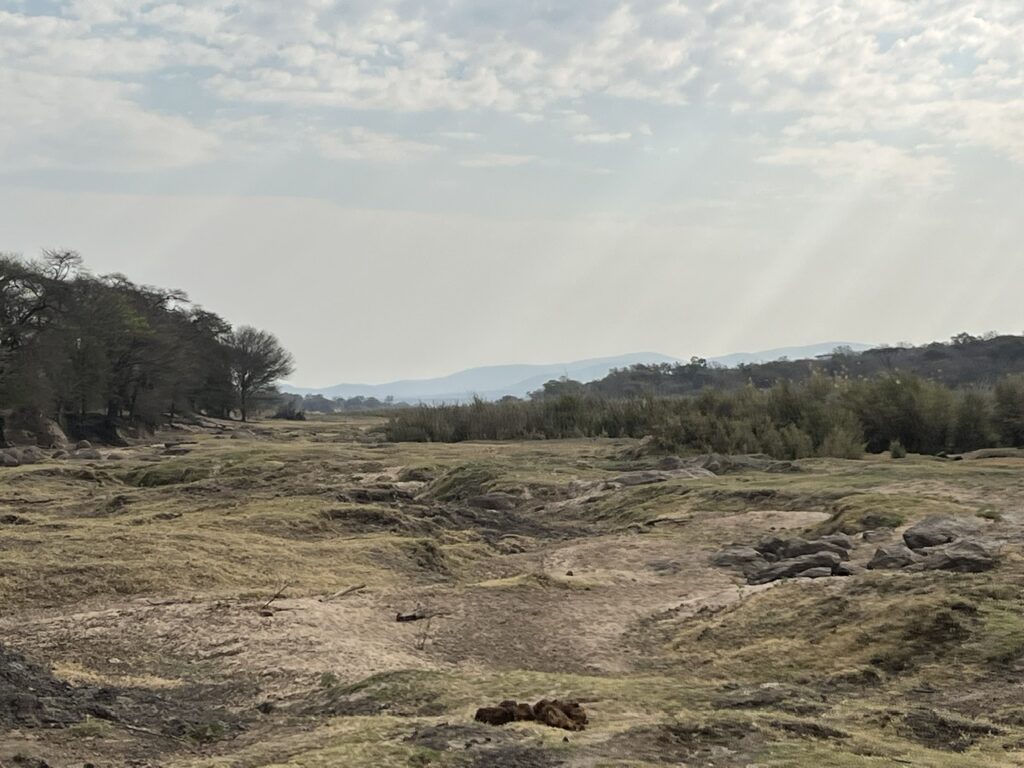
We drive east along the river which makes taking any meaningful photographs tricky to say the least. The problem is further compounded by the huge numbers of tsetse flies. Whenever we stop the vehicle we are inundated. It is unpleasant to say the least and painful when they get you – which they do even through your clothing. There are little pockets in the river where there is water and wildlife congregates there.

Pelicans and marabou storks circle and soar on the building thermals. We spend some time trying to capture some good action shots but Anderson is really not great at positioning the vehicle.

We see elephants in the distance, herons and crocodiles basking on rocks in the few pools that exist.
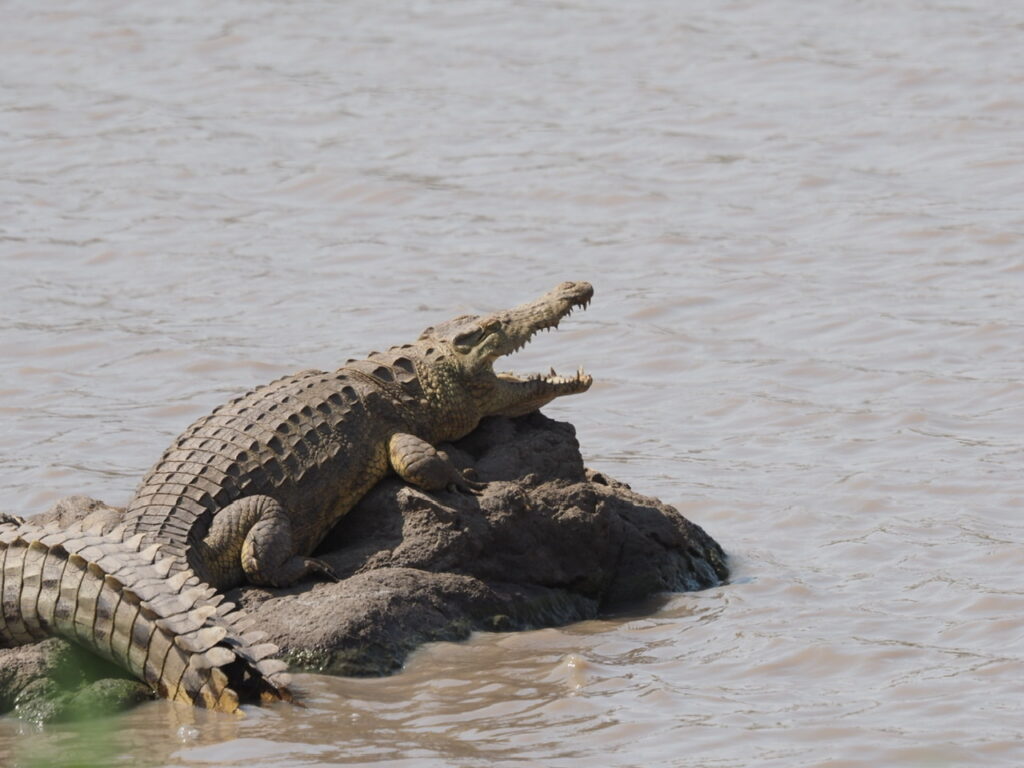
After a couple of hours we turn back. The sun is now behind us so photos should be better. We bump into another Asilia vehicle. It is Ally the chef with helper Dickson. He is going to cook us brunch in the bush. We are slightly apprehensive about this because of the tsetse flies, but it turns out that they do not bother us once we are out of the vehicle.
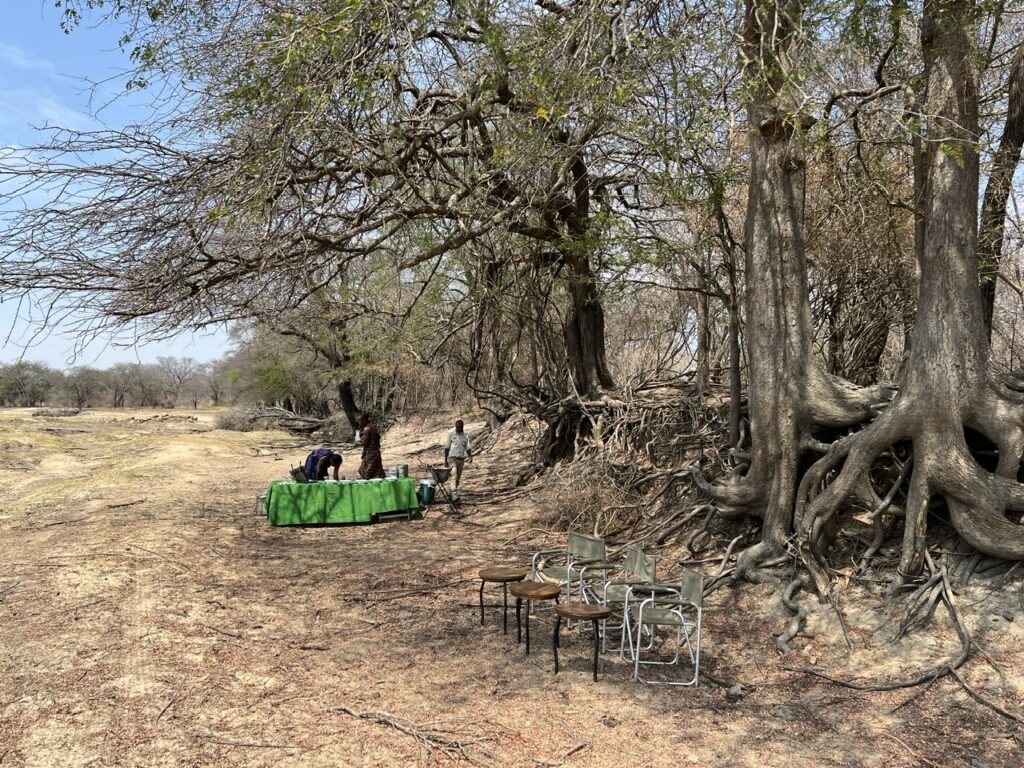
Brunch is delicious sausage, crispy bacon, saute potatoes, tomato, fried spinach and onion, salad and fried eggs, all freshly cooked over a gas ring and washed down with a nice glass of chenin blanc. What’s not to like?
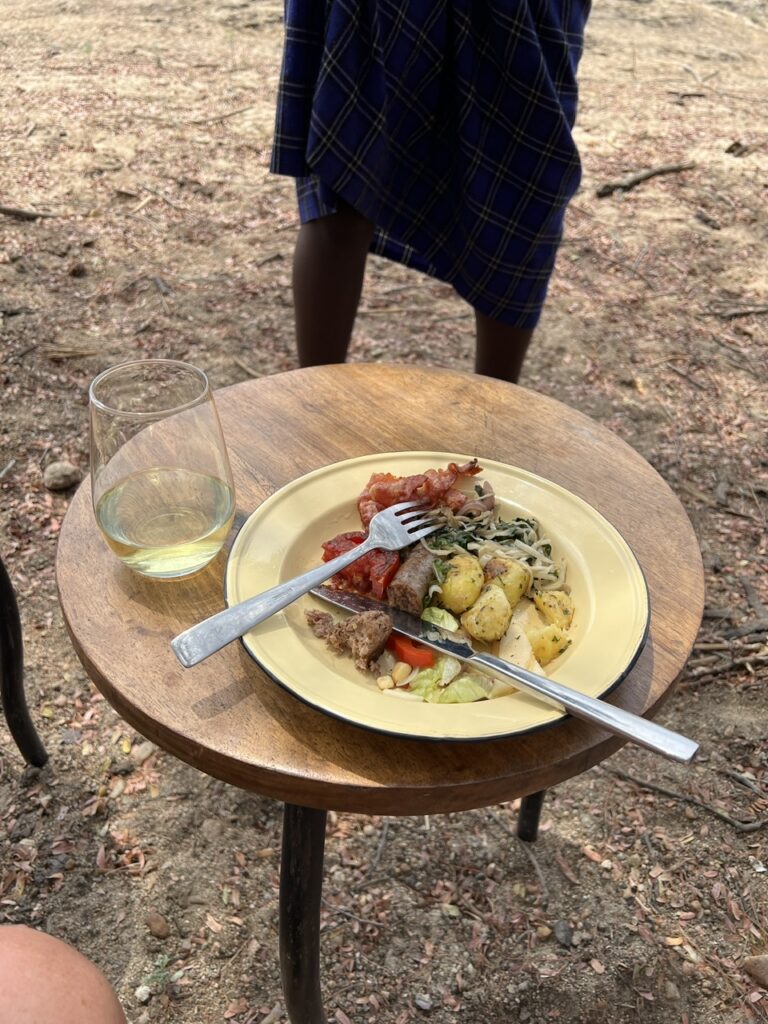
We now make our way to the hippo pool. En route we see a lilac-breasted roller and I manage some in flight shots. Not brilliant but better than anything I have captured in the past.

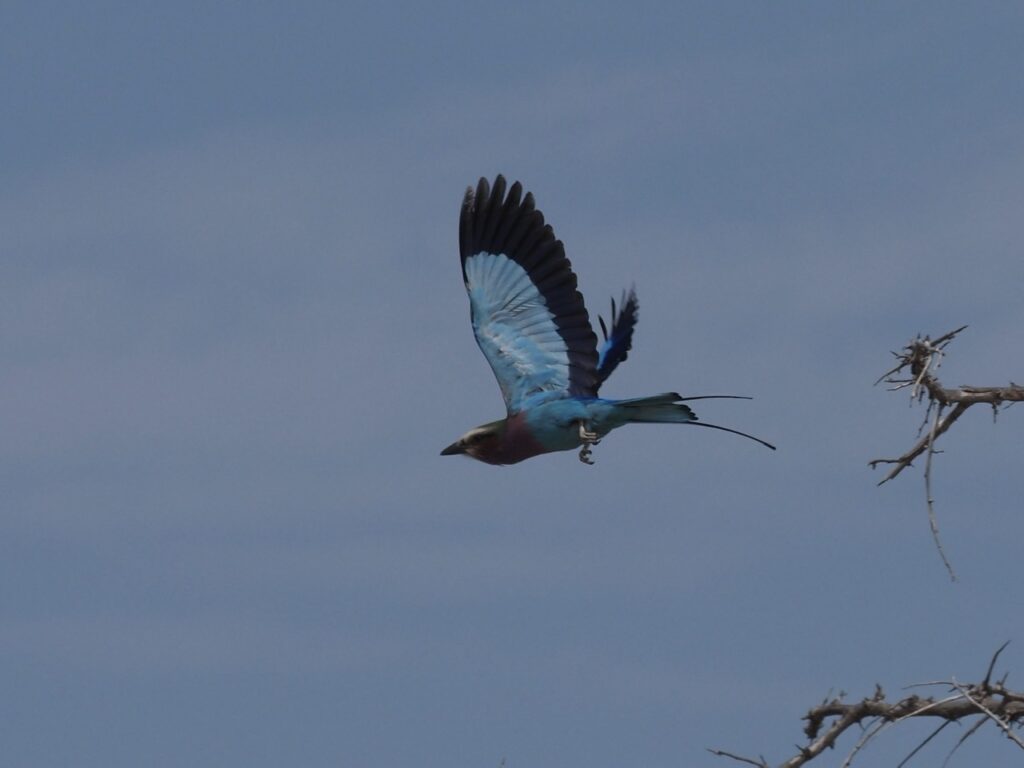
There is lots of bird activity at the pool and hippos wallowing and grunting. We spend an hour or so observing and photographing though the sun is still not really in the right place for perfect shots. We’ll just have to work with what we’ve got.
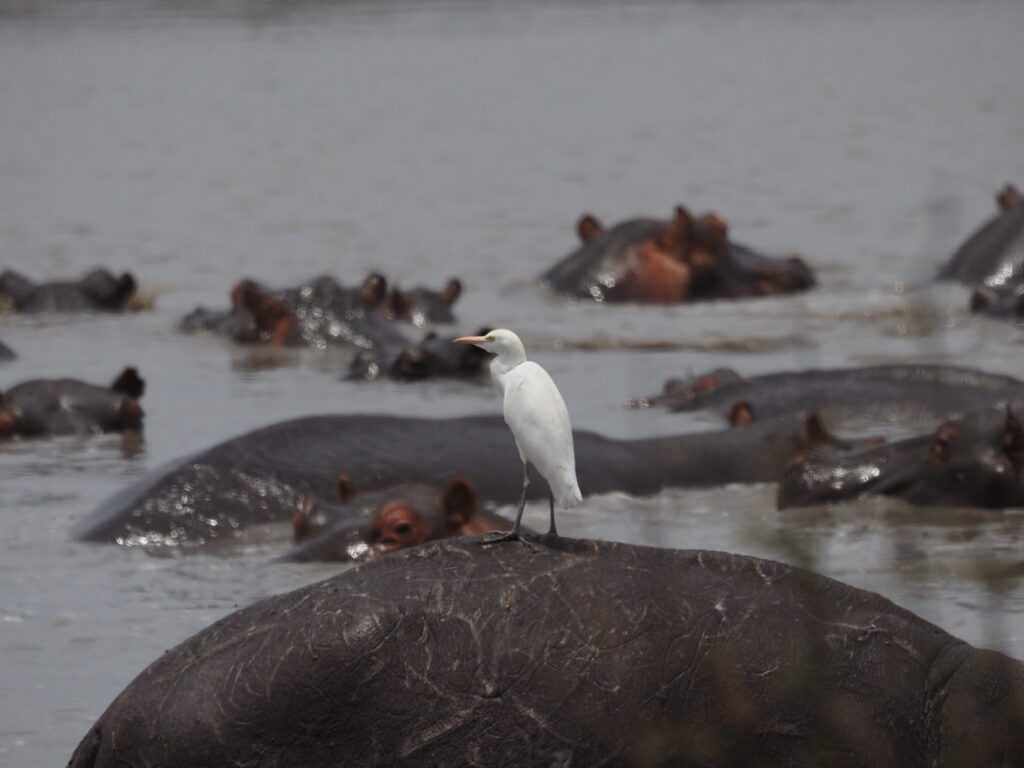
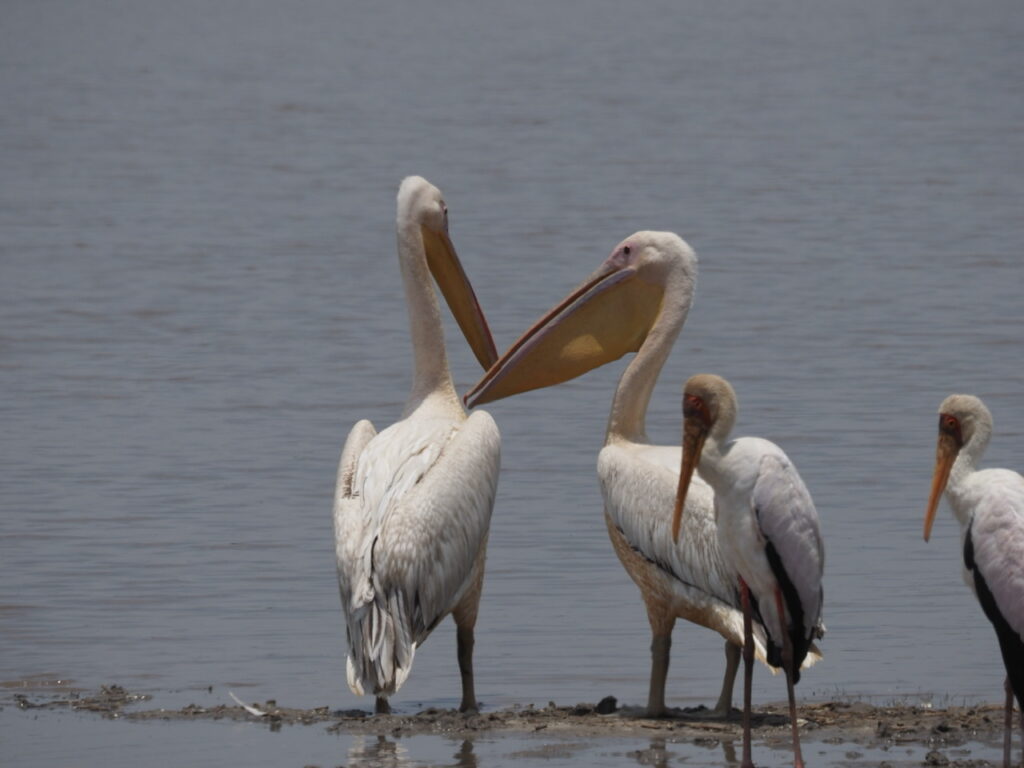

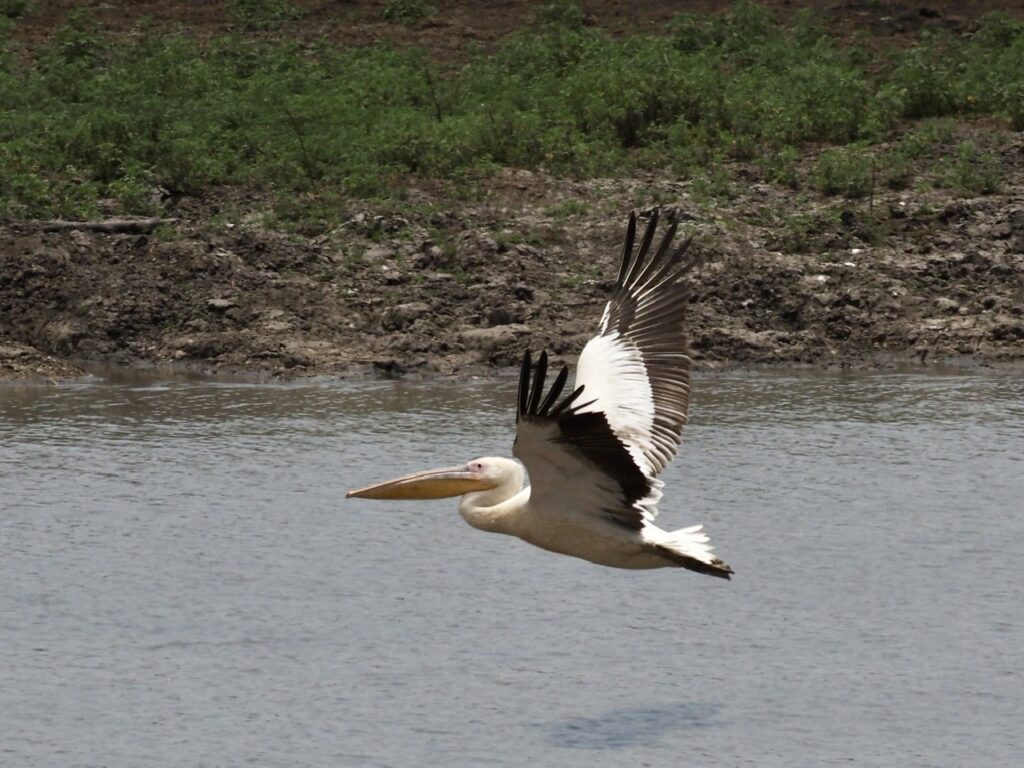
We head back to camp and spot giraffes resting under the shade of an acacia tree. They are some distance away – probably 100 yds or so. We can see there are babies but really struggle to count them. In the end we decide there are twelve giraffes in total with a couple of males standing away from the group.


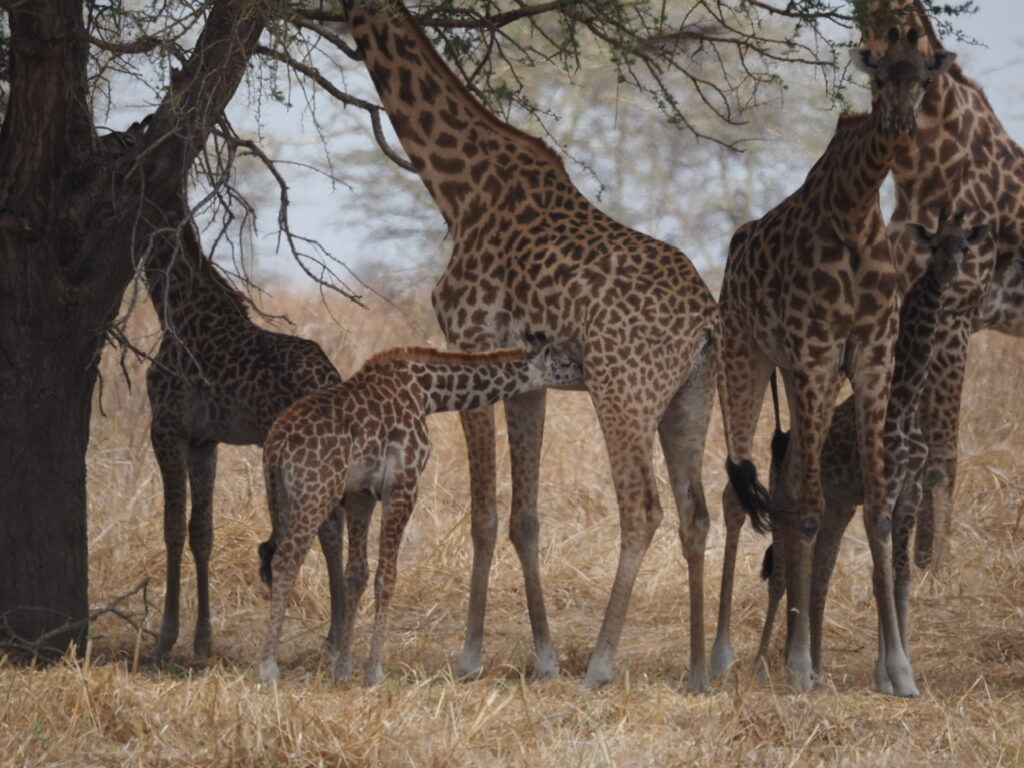
We freshen up and have a cup of tea before heading out again for sundowners. The area has been ravaged by fire. One particular fire was meant to be controlled but it was set too late in the season with the grass too high. The wind changed direction. It was completely out of control and burnt out 100 sq km and very nearly destroyed the camp a couple of weeks ago. The staff were out beating the flames and managed to halt them by the camp fire where we have our breakfast and dinner. We have our sundowners in the midst of this seemingly ruinous destruction. The thing is, if the rains come soon, green shoots will once again appear – and surprisingly quickly at that. It was quite emotional to stand amidst such total devestation and see the animals trying to survive amongst the blackened earth.
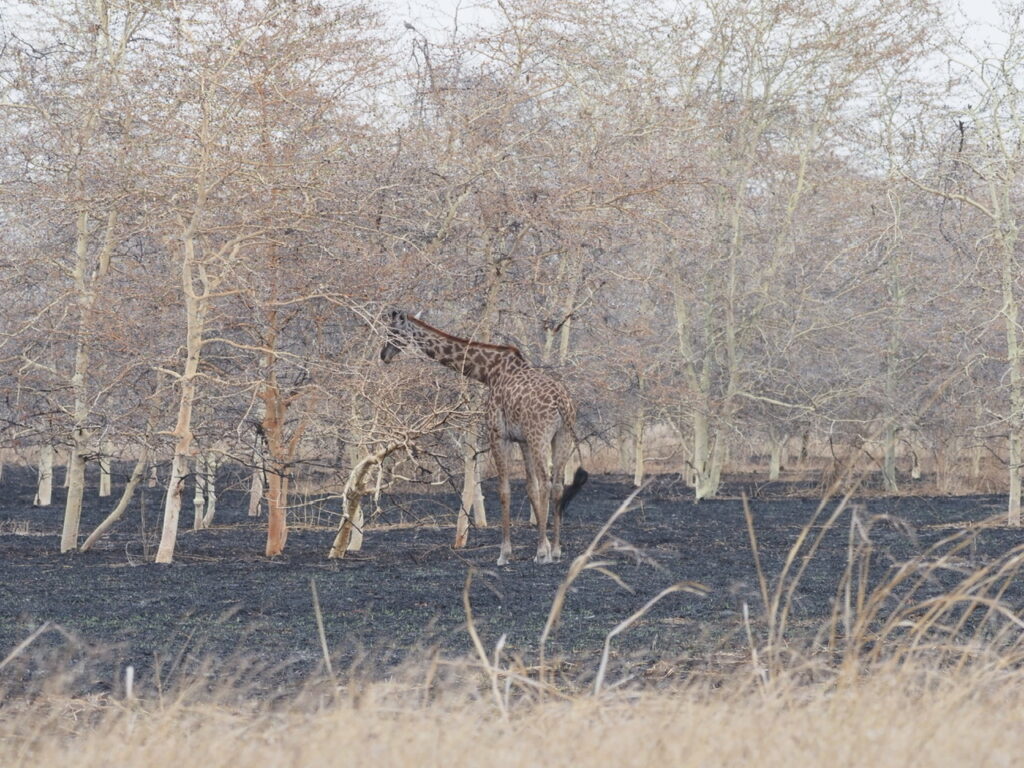

We then had a really serious problem. One of the glasses was broken. Only one glass between two for sundowners. Shock and horror! What to do? I love Jane’s inventiveness. Clearly drinking straight from the bottle was the solution.

The sun sets and we head back to camp using a spotter light to see any creatures that may be around. We are so lucky. We see two porcupines and manage to capture some decent video. We are then heading up the track to camp and encounter two male lions lying on the road in front of us. How lucky are we? They lie quietly for a while, then lazily stand up, saunter along the road and eventually disappear into the bush.
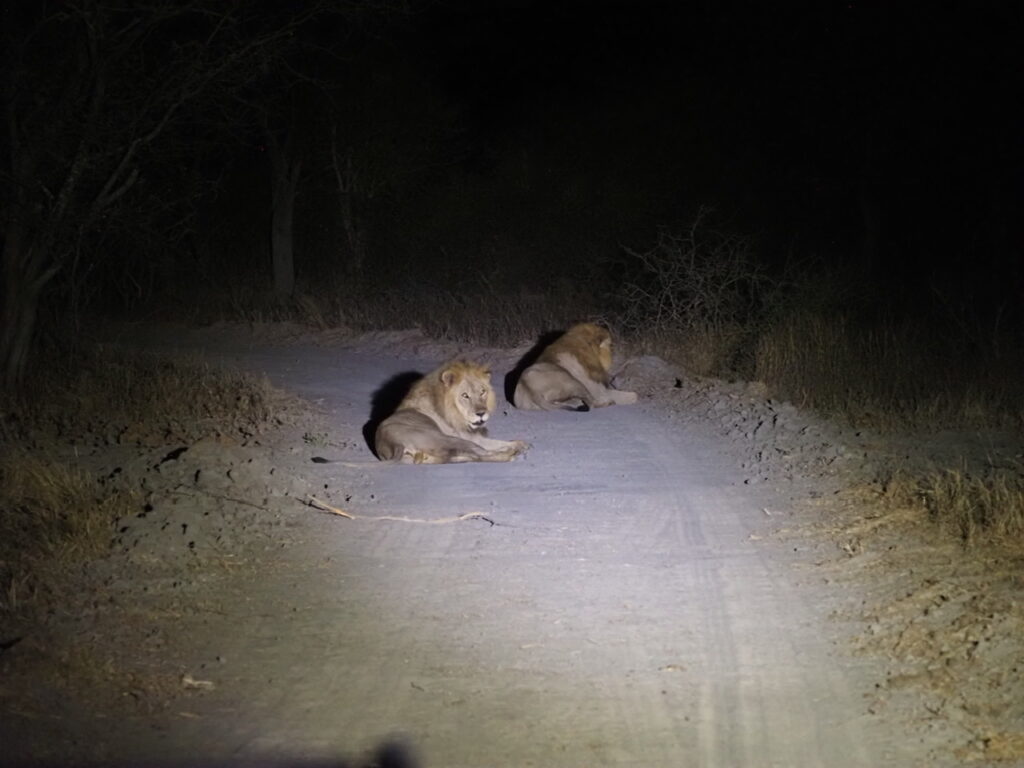

Leave a Reply